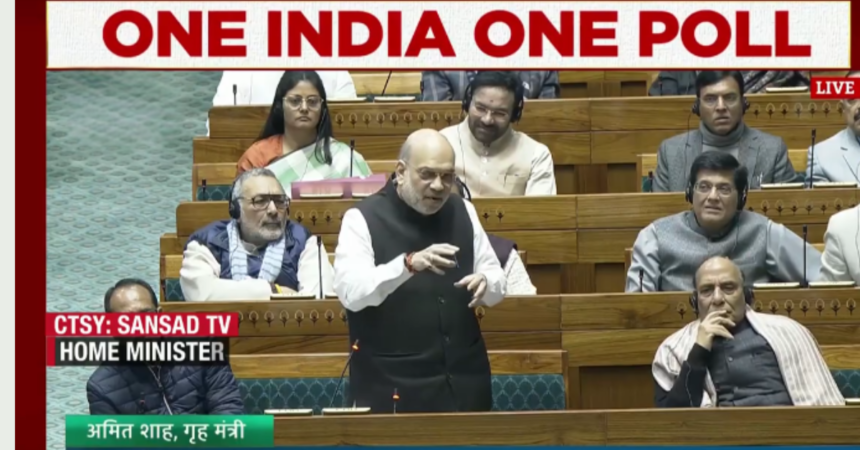This review is of the original Tamil version of the film
Measuring up to the aspiration that the film’s title implies is a tough ask for everyone. Superstar Vijay, as usual, does not shy away from this challenge. He goes all out to embody what his fans think of him and lands on his feet at the end of a formulaic workout.
Coming into the project as a father-son duo, the greatest of all time Vijay takes everything on his shoulders at the best of times. He overcomes the inevitable hurdles in such an overblown film with typical skill, even if not with consistent success.
Director and co-writer Venkat Prabhu weaves the film around the semi-retirement leitmotif that Vijay used in his recent releases (Beast, Leo). The protagonist has come out of the shadows over the years and is back in action.
Putting them in the larger context of cinema history at large while pointing in the wrong direction to the megastar’s own films and other Tamil films and songs, The Greatest of All Time includes a meta-reference to perhaps the imminent end. Vijay’s acting career in preparation for full-time entry into politics.
The Greatest of All Time seeks to continue Vijay’s unbroken streak of box office hits – a series of nine blockbusters that have made him the most bankable actor in Indian cinema. The film has everything his fans want. What more could have been done with the original script.
The film grapples with themes related to death – friendship, loyalty, betrayal, guilt and redemption – and culminates in a long-drawn-out climax that pits the actor’s two personalities against each other. Beyond the parameters of fiction, one can interpret the conflict as between a sense of duty and the need for self-preservation and revenge, between the passing generation and an era that blurs the line between good and evil.
Vijay plays M.S. Gandhi – note the initials are MS, not MK. Dhoni’s counterpart comes to the fore in the film’s climax, which deals with the make-or-break last over of an Indian Premier League knockout match at a packed Chepauk.
Gandhi – whose primary weapon is not peace but justice – leads a quartet of secret agents working for the Special Anti-Terrorism Squad (SATS), the Chennai-based branch of RAW. He is the MSD of Indian Intelligence – a great finisher no matter how badly he starts.
The same is true in the film. The Greatest of All Time is all right but loses its way somewhat in the first half as it tries to strike a balance between the protagonist’s inner conflict and familial responsibilities.
As he himself points out, he has two bosses, one at work, the strong SATS leader Naseer (Jayaram), and the other at home, his wife Anusuya (Seneca). He has more trouble with the latter than the former.
After a series of crucial revelations and a series of murders perpetrated by a fake youth who emerges from Gandhi’s past, The Greatest of All Time makes way for an original finale that is partly redeemed by the skill with which it has been set up and filmed. Cinematographer Siddharth Noon and editors and Venkat Rajen must be mentioned here.
All it takes is the press of a button to unleash a devastating explosion. Gandhi, never one to back down in training, is determined to prove who the GOAT is. He springs into action when thousands of innocent lives are put at risk.
The Gandhi team, working with Kalyan Sundaram (Prabhu Deva), Sunil Thyagarajan (Prashanth) and Ajay (Ajmal Ameer), are sent to Kenya on a crucial mission. They hijack a train carrying weapons-grade uranium for a terrorist organisation. In the heat of the moment, they disregard their brief.
The ill-advised move – which does not bear the intended fruit – haunts Gandhi, his wife and their five-year-old son Jeevan (Akhil) – and his SATS comrades. Just before the break, Gandhi and his boss have a violent confrontation with a man who hides his face behind a crash helmet bearing the word ‘Satan’.
The remainder of The Greatest of All Time follows a renegade secret agent (who has a giant axe to grind and open endless beds) and a number of traitors and profligates who push the hero and his men to the end of their tether.
The image is oversaturated and at times a touch tiring. However, the action sequences and plot twists are reasonably spaced throughout the three-hour running time. So, none of them are out of place. I wish I could say the same about the songs (composed by Yuvan Shankar Raja). They not only slow down the pace of the film but also increase it unnaturally.
The director, on his part, is aware of the impact of musical numbers on the pace of the film. In the sequence following the brutal murder of a government official, the criminal uses his lover (Meenakshi Chowdhary) as a means to impress the pursuer. The woman asks why did you call me here? No, (I called you here) for a song, the man replies.
Action is the main currency in a thriller like this. Not every song is music to the ears. Similarly, not every attempt to incorporate humour in the film’s proceedings is successful.
Yogi Babu is shown as a man who has a stolen mobile phone that contains important secrets. Away from the names of the protagonists, Nehru and Bose are driven by a subplot that forms part of the film.
Vijay portrays two very different characters, one brown and steely, the other shy and blunt, and both carry scars of past events, which makes up for the lack of logic and flow in the film.
His consistent defending this millennium has surprised his critics. Of course, his fans will find no reason to belittle the greatest of all time.










